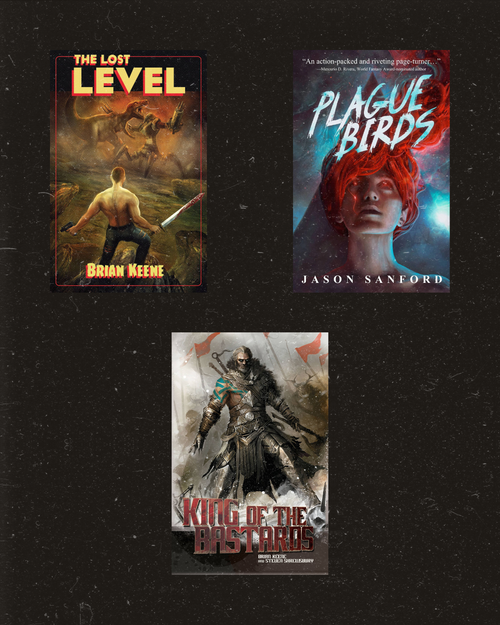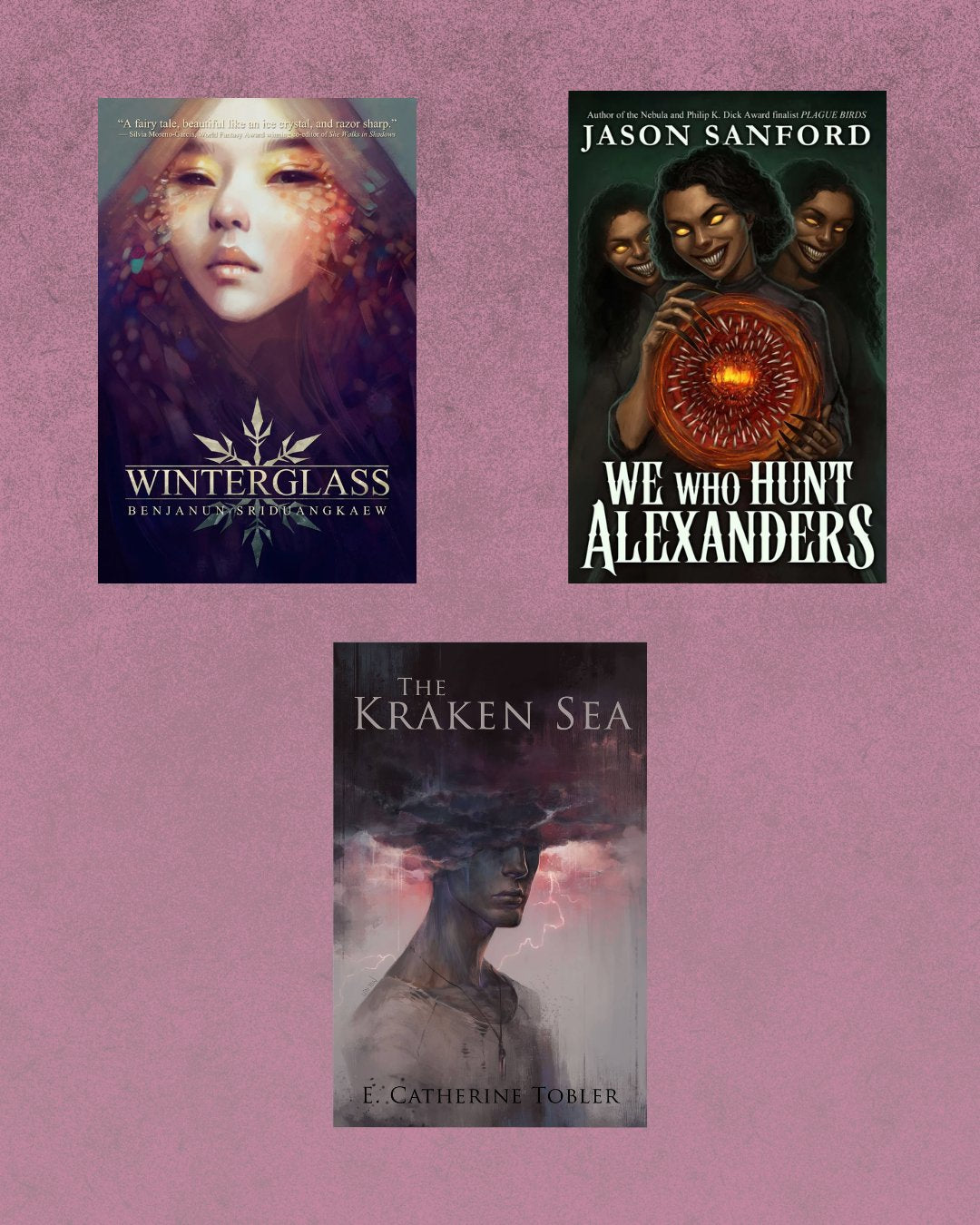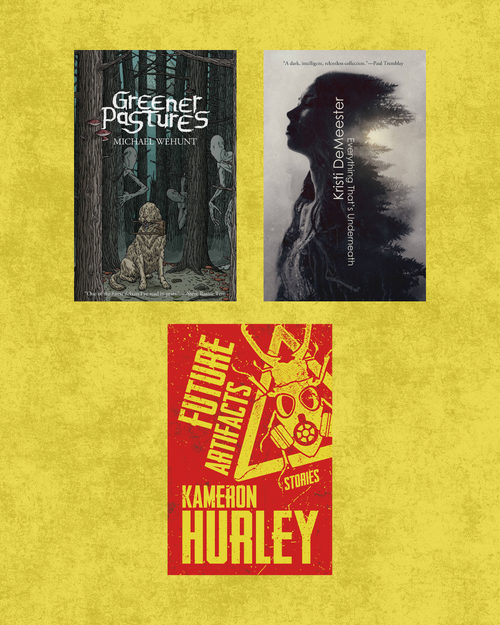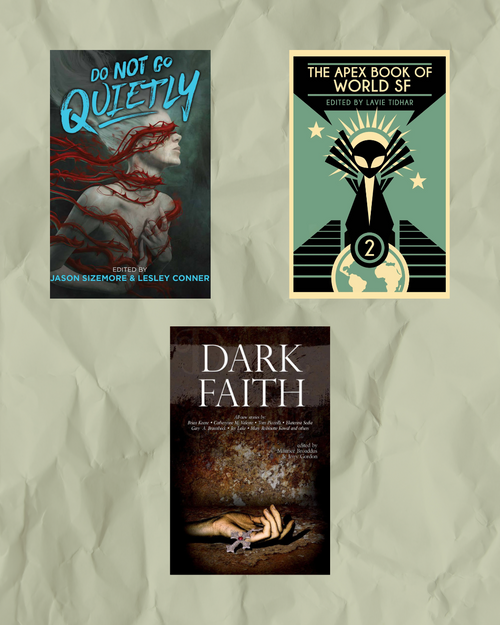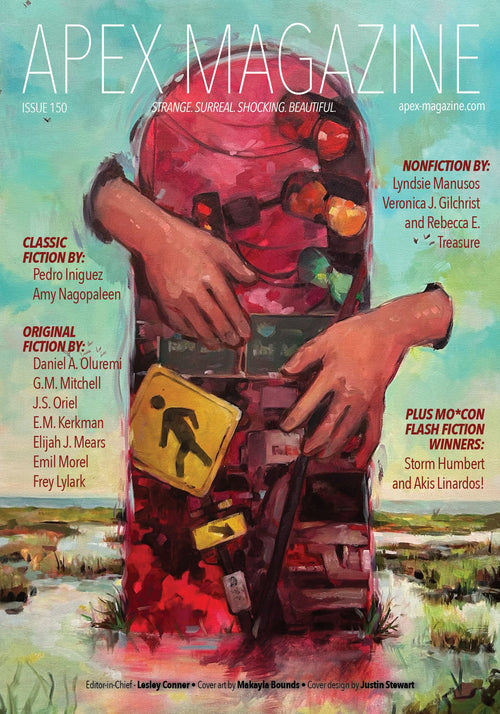by guest author Cristina Jurado
Moving houses is a strenuous task, but changing continents is even harder. I know it because I had to arrange for three continental movings in the space of four years: from the US (North America) to France (Europe) and then to the United Arab Emirates (Asia). It took some triage and many donations to reduce the number of books I accumulated over the years. The ones I sent over would take many weeks to be delivered, so I knew my most cherished books had to travel with me, in my suitcases. I had only two criteria: they had to be especially meaningful and not too bulky. Here there are the ones that made the list:
- There is no place I go in which I don’t bring Frankenstein, by Mary Shelley, the Penguin Classics edition from the ‘90s. It reminds me of where we all, authors of sf, come from. Telling a story from the point of view of a monster is an idea that really moves me, because I believe that, taking the stance of the Other is somehow provocative and exciting.
- If there is a book I read dozens of times as a teenager is Robinson Crusoe, by Daniel Dafoe. I loved the fact that it was packed with adventures from a faraway land with a protagonist finding ways to endure an extreme situation of solitude. Being able to stay alive in such harsh conditions was a metaphor for surviving my teens, I suppose.
- The Aleph, by Jorge Luis Borges includes one of my favorite stories ever: "The House of Asterion", an account of the Minotaur myth narrated by the creature itself. Its powerful ending is one of the most fascinating elements of the text, and an example I always use.
- I never get tired of reading The Martian Chronicles, by Ray Bradbury. Even before knowing what a fix-up book was, I enjoyed the stories immensely, again, because they were told taking the Martian's stance (by now you can see there is a pattern in the types of stories I’m drawn to).
- The Left Hand of Darkness by Ursula K. Le Guin opened a new world to me, literally and metaphorically. Not only I was able to learn about the politics of the iced planet of Gethen but also start to question my own biases regarding genre: if anything is possible in sf, why not imagine a place where genre was fluid?
- Kim Stanley Robinson told me in a convention not to listen to those who disapprove of me writing sf. His Mars trilogy had a tremendous impact in me as reader. Although I started it in the second volume, Blue Mars, I’ve always felt it spoke directly to me about the challenges of surviving and the importance of collaborative work.
- Even though Tinker, Taylor, Soldier, Spy by John Le Carré is not a sf book, I’ve always admired the way this author works suspense and characters. If there is a more remarkable and apparently unmemorable protagonist in his books is George Smiley. I often go back to Le Carré’s works for inspiration while developing a solid character.
- Momo may not be the most acclaimed story by Michael Ende’s but, to me, it was one of his bests. The way he built an interesting a free spirit female protagonist and how he managed to generate an interesting plot questioning some of modern society assumptions never ceases to impress me.
- I’m a big fan of Linda Nagata. The first book I ever read from her, The Bohr Maker, was the one who introduced me into cyberpunk. After reading it, I looked for more of her stories: that is why she is my referent on that sf subgenre.
- The last book is Ubik, by Phillip K. Dick. Published in the late ‘60s, it amazes me how relevant still is. Deception, corporate grid, parallel realities, and specially, the open ending are some of the elements that, until today, made this one of my favorite stories ever.
If you had to pick ten physical books to travel with you, which ones would they be?









